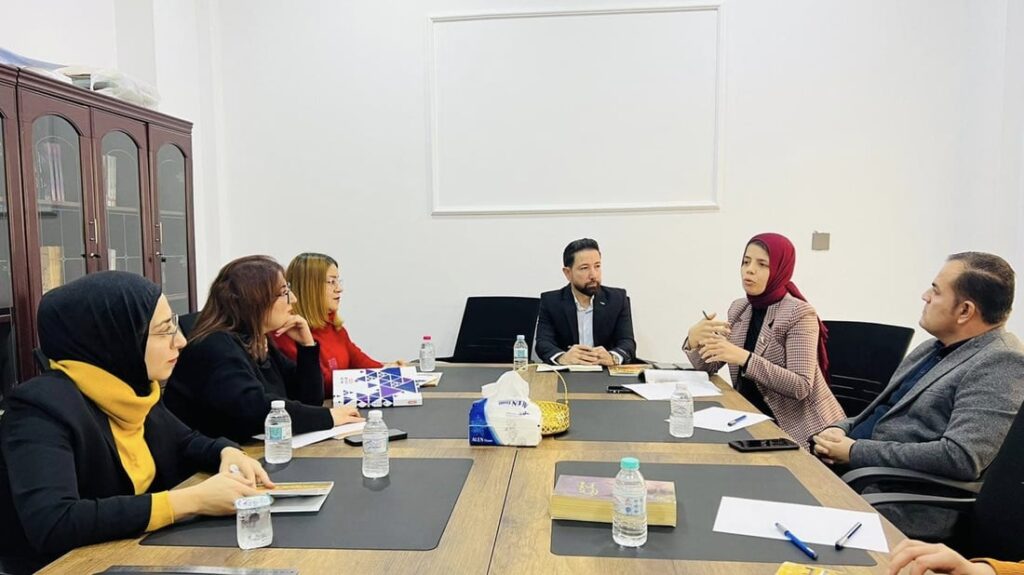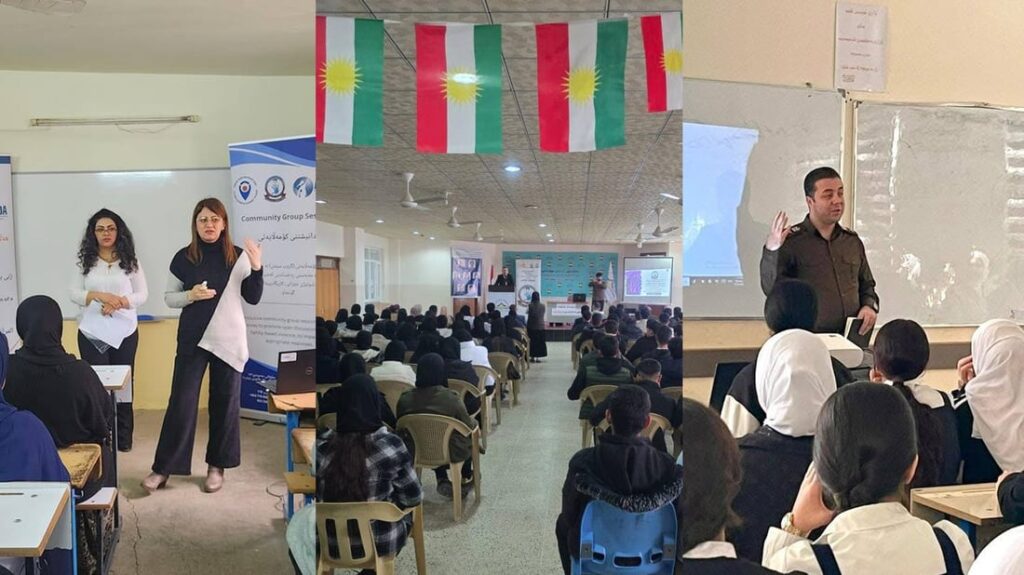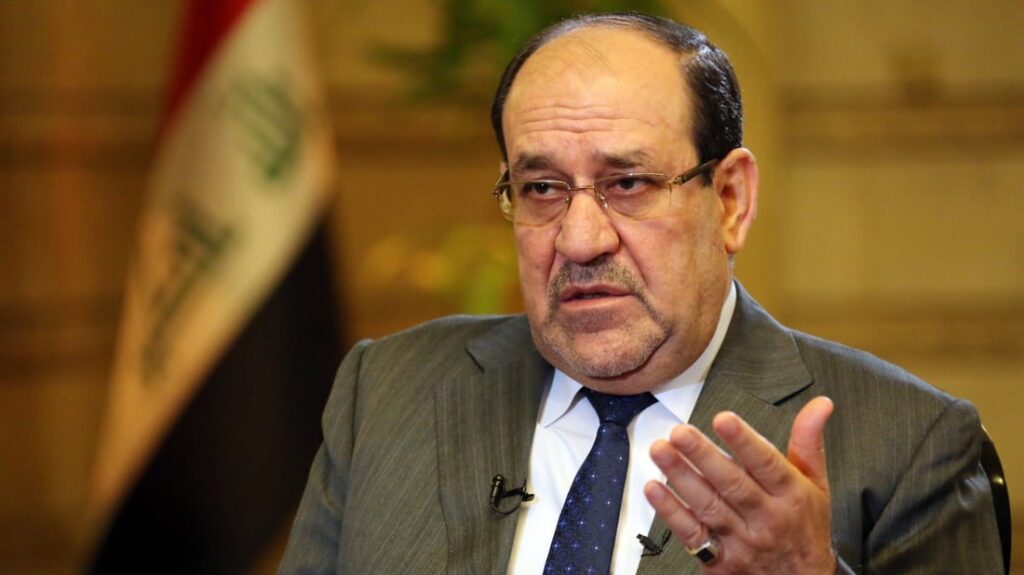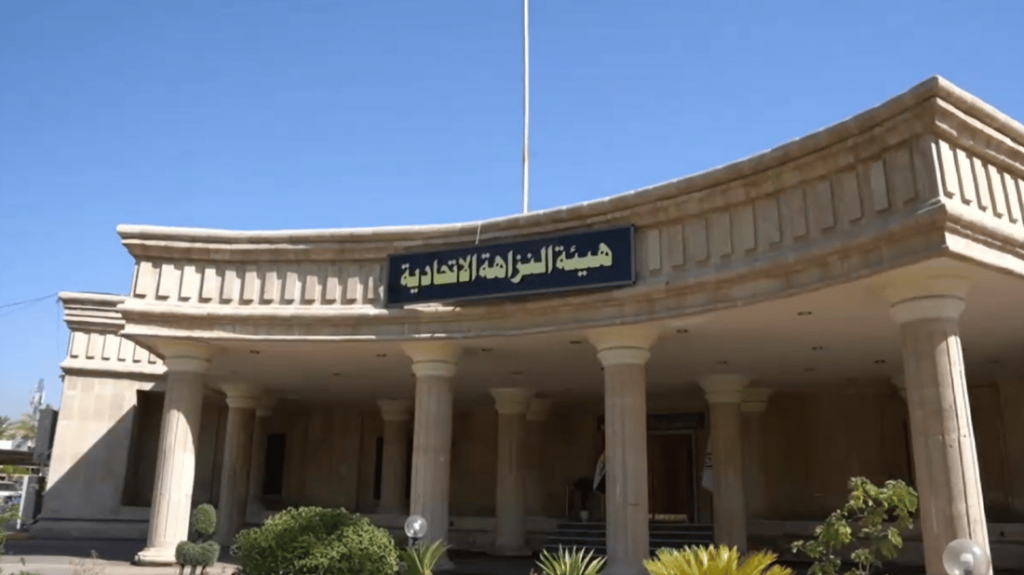Iraq: Iraq: Government Promises Action On Security Force Abuse

Report Recommends Top-Level Dismissals After Protester Deaths
(Beirut) – The Iraqi government has promised dismissals and possible additional action against senior security officials over the deadly response to a series of protests in early October 2019, Human Rights Watch said today. However, the Iraqi government has yet to make its findings public, and its report did not address some of the most serious abuses committed during the protests and the alleged role of Popular Mobilization Forces (Hashad or PMF) in killing protesters. ?Prime Minister Adil Abd Al-Mahdi signed off on the recommendations of an investigative panel on October 22. The panel recommended firing senior security officials and investigating senior officials for the deaths of 149 protesters and 5,494 injuries between October 1 and 9. Protesters continue to report intimidation, including disappearances, and activists have called for nationwide protests to resume on October 25.
“For the first time Iraq’s government appears to have investigated abuses and proposed action,” said Sarah Leah Whitson, Middle East director at Human Rights Watch. “However, the government needs to go beyond dismissals and hold officials, particularly those in command control, accountable for the wrongful use of lethal force and arbitrary arrests.” Human Rights Watch has interviewed 24 people present at the protests, all of whom described abuses they had seen or experienced.
The protests started in Baghdad and southern cities on October 1, demanding improved services and more action to curb corruption. Security forces used excessive lethal force at times in confronting rock-throwing protesters. Security forces also shot at protesters as they dispersed and sprayed them with scalding water.
Al-Mahdi responded to the allegations of excessive use of force and arbitrary arrests by forming the Higher Ministerial Committee for Investigating Events of Demonstrations. Based on summaries of the report shared with Human Rights Watch, it found that 70 percent of the deaths were from bullet wounds to the head or chest. It said that, in addition to the dismissals, the authorities should refer commanders implicated in abuses to the judiciary. However, the report did not address command responsibility for seemingly deliberate killings of unarmed protesters. The report also did not address the storming of multiple media outlets, attacks on journalists, or the government's decision to take the disproportionate measure of blocking most access to the internet from October 2 to 8.
On October 13, the government announced that it had started compensating families of people killed or wounded during the protests.
The authorities also acknowledged arbitrary arrests. The Independent High Commission for Human Rights of Iraq said that authorities had arrested 1,055 people, but had released all but 21 as of October 20. Local media reported on October 19 that the Interior Ministry and judiciary agreed that all security bodies must notify the Interior Ministry “immediately” about arrests.
Some protesters have remained in hiding, fearing arrest. One Baghdad protester told Human Rights Watch that on October 8, three masked armed men came looking for him at a friend’s home where he had been staying, the friend’s mother told him. The man found that his own apartment had been searched, with many belongings and electronics destroyed. He fled the city. On October 11, he said, his mother, who lives in another city, called to say that five masked men came to her home, demanding information about his activities and whereabouts. He said they took his brother to another site and interrogated him. He said he worried that he had put his family at risk because he had been outspoken on social media about government suppression of the protests.
Some people have alleged that security forces forcibly disappeared some protesters who have yet to be released. The wife of Maytham al-Helo, a Baghdad resident, said that her husband had been involved in 2015 protests but not in the recent protests. She said that on October 7, al-Helo’s colleagues saw him leave work at around 7 p.m. and walk toward his parked car. She called him at 7:30, but his phone was switched off. She later found his car in its usual parking space but has not located him. She said she has gone to various police stations and security offices, but authorities said they are not holding him. Al-Helo was finally released on October 24. The brother of another protester said his brother has not been heard from since he went to a Baghdad protest on October 3. At some point between 5 and 8 p.m., he said, his brother’s phone was switched off. He said he went to police and security offices but has found no sign of him.
An activist said that on October 9, a friend who is a police officer told the activist that he was on a government-issued list of about 500 names of activists wanted for their roles in protests. Many other activists said they had heard rumors of wanted lists, as did the UN Assistance Mission to Iraq’s special report on the protests, but Human Rights Watch was unable to verify their existence.
The activist said the police officer said he was wanted under Article 212 of the Penal Code, which criminalizes inciting “by any means of publication the commission of the offenses of manslaughter, theft, destruction or arson or any other felony, which, by their nature, endanger the public security if such incitement has no effect.” He said another friend who is a member of a Popular Mobilization Forces (Hashad or PMF) group, formally under the prime minister’s command, told him he should leave Baghdad because he thought security forces would arrest him. The activist went into hiding.
Another protester said he participated in protests in Baghdad from October 1 to 4 but started worrying after he saw security forces arresting many protesters from his neighborhood. He called a friend in the security services to ask if he was at risk, was told that his name was on a wanted list, and was urged to flee the city or risk arrest at a checkpoint. He also went into hiding. A third person said he was involved in demonstrations previously but not in the recent ones. He received a call from a blocked number on October 6: “A voice told me, ‘We know what you are doing, you were leading the protests in 2011, 2013, 2015, and 2018. Wait for your turn.’ I got nervous and didn’t know what to do. The next day I decided to leave Baghdad.”
A journalist at a local media outlet, UltraIRQ, which published videos and images from the protests, said that someone called from a blocked number and warned that the outlet should stop publishing such material. He said a security official he knew also called him and told him that his name, as well as those of several other UltraIRQ staff members, were on a wanted list and were at risk of arrest. He said that he and many other staff are in hiding.
Eight protesters said they are anxious about the government’s response to the planned protests on October 25. Maher Hassan Satar, a basketball player who wears a prosthetic leg, said that many people took photos of him at the October 1 protest that went viral on social media. Satar said that at a demonstration on October 2 in the same place, a SWAT officer caught up to him. “He started punching me and said they had been looking for me because I was inciting anger among protesters against them, because he had seen the pictures. He dragged me away to an area where they had parked their vehicles and beat me for about an hour with a plastic pipe.” He said the captain told them to release him because he had a disability, but that “as I was leaving, he told me, ‘If I see you at another protest, I will arrest you from your bed.’”
He said he will continue to protest but is not staying at his home for fear of arrest: “I am disabled and living in a disabled country, and I want to be part of the change that I hope will happen.”
Authorities should respect all Iraqis’ rights to freedom of expression, and end intimidation against activists, Human Rights Watch said. Security force members, including commanders, responsible for the use of unnecessary or excessive lethal force should be disciplined or prosecuted as appropriate.
“If Prime Minister Al-Mahdi is serious in holding officials responsible for using repressive tactics, October 25 may test that commitment,” Whitson said.




